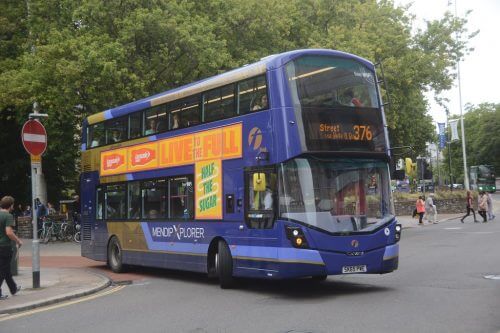
James Freeman has been Managing Director of First West of England since October 2014. It’s a role he approached First about taking on and as he explained to Andy Izatt just over three years later, it’s been an interesting time
First West of England Managing Director, James Freeman, has never been one to walk away from a challenge. A National Bus Company graduate trainee, his long and diverse career dates back to the 1970s and has given him a breadth and depth of experience that few in the industry can match. Born in Bath, he chose to relinquish the top job at Reading Buses (see panel) to take up his current Bristol-based role because he wanted to make a difference to the bus company he’d grown up with. Three years on, the general year-on-year passenger increase is between 6 and 9%.
“Bristol is a very complex city with challenges,” explained James. “It’s a bohemian kind of place. I think there are probably more cycles used on the Gloucester Road than anywhere apart from London. The average number setting off northbound during the evening peak is around 50 per traffic light cycle. This is a part of the world where people care about their environment and also have high expectations.
“What I found when I first came to what was First Bristol & West of England in 2014 was a company that was a bit dispirited. The brand was tarnished. The public always seemed to think the worst of us and sadly, often still do although we continue to work to change that.
“I’ll give you an example of what we’re up against. There was a letter in the Bristol Post newspaper recently from a woman who said that she’d presented her concessionary pass on one of our 48 route buses and it wouldn’t register. Her view was that this was clearly First cooking the books so the service would become un-remunerative and we would take it off. She felt we were capable of doing that, which of course is ridiculous. The 48 is actually one of our busiest routes with a PVR (Peak Vehicle Requirement) of 15.”[…]
By subscribing you will benefit from:
- Operator & Supplier Profiles
- Face-to-Face Interviews
- Lastest News
- Test Drives and Reviews
- Legal Updates
- Route Focus
- Industry Insider Opinions
- Passenger Perspective
- Vehicle Launches
- and much more!


